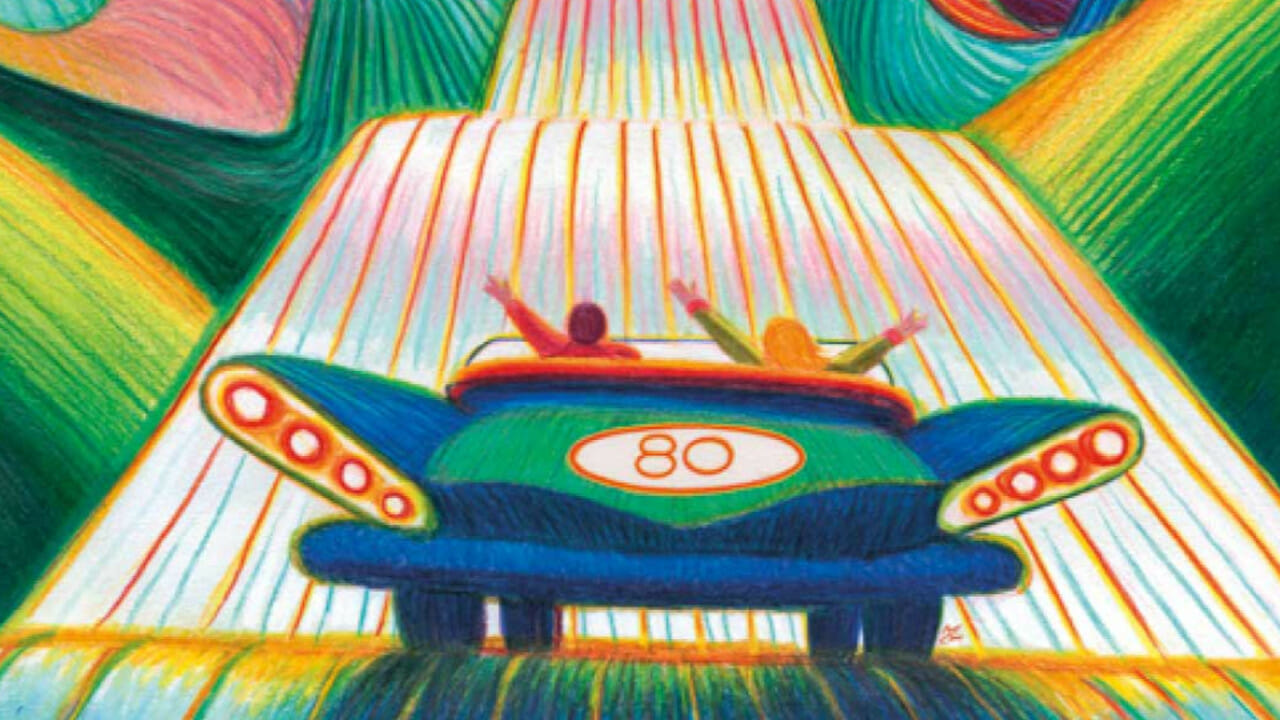
Luc Besson's DogMan | In Dogs We Trust
Year
Runtime
Director
Main Cast
Writer
Cinematographer
Production Designer
Music by
Country
Format
Genre
Subgenre
Dog trainer, dog rescuer, cross-dresser, drag queen, performer, man of God, vigilante: Douglas (Caleb Landry Jones) is many things, but he is not a conformist. In a long confrontation with a police psychiatrist (Jojo T. Gibbs), the “dogman” finally gets a chance to tell the story of his traumatic life – how he turned it into a performance to survive, how it inevitably spiralled into violence, how dogs were the only ones to show him unconditional love throughout – and set the stage for the grand finale.
DogMan marks French filmmaker and screenwriter Luc Besson‘s landing at the 80th Venice International Film Festival and his return to the pulp genre – three decades after Nikita (1990) and Léon: The Professional (1994) – in an over-the-top, cinephile and cynophile celebration of life and fiction.
Joking dogs never bite
Very loosely inspired by Matteo Garrone‘s 2018 Dogman (itself based on a true crime case), Besson’s movie, like its predecessor, shows full support for its anti-hero. But it also opens up the spectrum of the dogman’s revanche to a societal level, in a way reminiscent of Todd Phillips‘ Joker (2019).
DogMan is a kind of reprise and response to Phillips’ work, with one crucial difference. Joker – and Garrone’s Dogman – is ultimately a revenge fantasy, a power play. Its allure comes from a sense of retribution: a man, humiliated and insulted for his (perceived) weakness, is pushed to the limit and violently unleashes all his power against whomever has or might have tormented him. It’s a mystique that American director and screenwriter Sam Peckinpah first explicitly put on film with Straw Dogs (1971) – but it has much deeper cultural roots to be unearthed.
The fact that Besson’s dogman (for the most part) does harm in self-defense, and the story’s many messianic overtones (to be taken with more than a grain of salt) distract from the point of the movie. DogMan is less about proving one’s worth and more about showing one’s true, possible self. It’s about making things meaningful through spectacle. It’s about performance.
Poor players have their hour on the stage
Don’t dream it, Be it.
The Rocky Horror Picture Show
Contrary to expectation, diversity is not the main reason for the persecution of the dogman. Rather, it’s the shelter, the warm embrace, that he resorts to in the face of a persecution that is pretty much meaningless. By making such ordeals seem gratuitous to the viewer, DogMan makes a point about their nature. It’s not just that violence finds its justification in power, but that violent forms of power find their raison d’etre in violence itself. They hurt because they can, not because they have to or need to.
Performing becomes an act of redemption. The dogman internalizes the world’s contempt for him, only to turn it to his advantage. He uses it as an impetus, an opportunity for self-expression and self-determination. And ultimately, as a chance – if not a mission – to return to a scornful environment in the form of pride. Retaliation is not the ultimate purpose of the performance, but the excuse to kick-start it.
While not entirely devoid of sycophantic/patronizing tones, with this belief in the power of performance, DogMan gains in sincerity what it perhaps intentionally lacks in narrative logic, and manages to bring the anti-hero trope up to date.
Survival of the stylish
People watch movies to glean some sort of truth from the story, even though they know it’s fiction.
Luc Besson (Director’s statement – Biennale Cinema 2023 | Dogman)
Luc Besson has never been a realist or a revolutionary director. Like many postmodern auteurs who emerged in the 1990s, his oeuvre is characterized by the reinterpretation of other existing works. It’s a poetics of the derivative, where style is substance.
DogMan – a quasi-remake – takes this attitude to the extreme. In this sense, the movie is like the drag shows its hero puts on: full-costume renditions of long-dead divas and reenactments of old-time classics in playback. Nothing is unseen, nothing is to be taken at face value. The idea that it’s all fictional doesn’t get in the way of enjoying the performance; it’s the very reason for attending.
Such an approach may seem like surrender in times of struggle for the cinematic industry, and it may be, but it doesn’t matter. Until the curtain falls, the show must go on.
Tag
Buy a ☕ for Hypercritic








